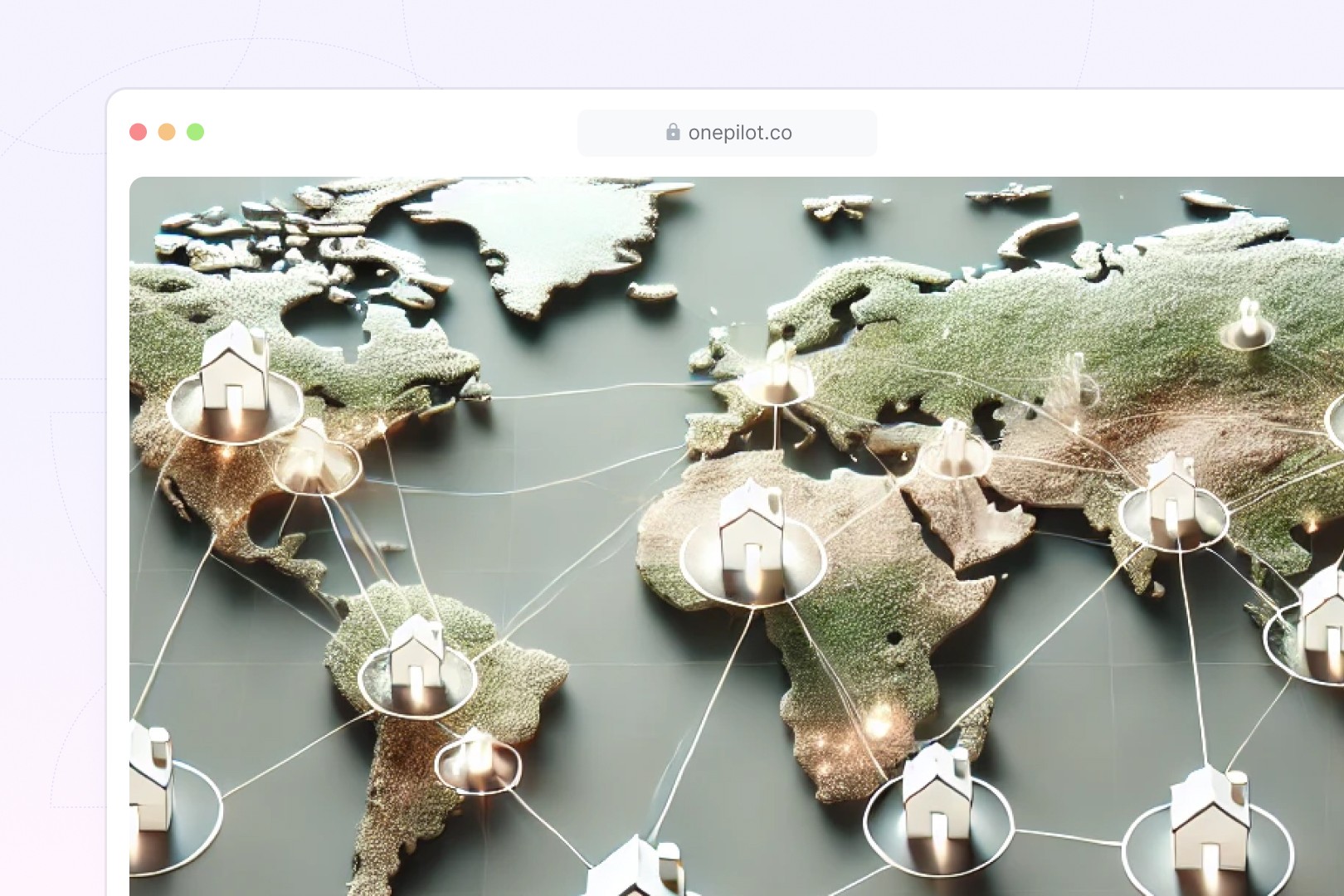Tips
February 21, 2022
Customer care : A profit center
As a customer, when was the last time you went on a rant to your friends and family about the bad customer service you had just experienced?
Have you ever posted five times the same disparaging comment under a company’s facebook or instagram post? Have you found yourself saying “As I have told your three colleagues for the past four months…” (and that is, IF you got an answer…)?
And it all comes down to one question: why does it feel like companies do not care?
Yet, customer experience has become essential, as many actors now believe that the economy has become relationship-centric.
With the advent of e-commerce, the economic landscape has changed. Thousands of companies are now vying for the consumer’s attention. So much so that, faced with so many opportunities, advertisements, promotions and services, consumers have become picky. Customers now have seemingly limitless options to choose from in nearly every category. We expect conversational, personalized, VIP treatment as a must-have, while it used to be just a really nice-to-have.
Competition between companies has never been tougher, driving them to spend more and more on acquisition: the cost of digital advertising is rising 5x faster than inflation, while retention costs are staying more economically advantageous for companies. It is therefore no longer enough to capture a market: keeping it is the key to success.
In this context, Customer Experience can become a true growth vector, allowing companies to reduce their acquisition costs, maximize their lifetime value, and truly differentiate themselves.
Offering the best customer experience is a real challenge
Let’s be honest, however: providing great customer support is extremely challenging. Crafting their customer support departments, companies are faced with many challenges to respond to today’s users’ prerequisites.
Building the best customer team is hard
Hiring customer care experts
Hiring Customer Care agents is the first challenge. And, yes, you do need to offer human responses now: 84% of consumers find it absolutely necessary for brands to provide real-time connection with a human representative .
While finding the best people in any department already is time-consuming for HR and managers alike, finding the best customer care support agents is, in itself, another deal entirely.
When hiring your support team, you must find the right people with the right set of skills. Hard skills such as being digitally aware, having perfect grammar and spelling, or being at ease with speaking; soft skills such as empathy, precision and critical thinking; and mad skills, which depend on your activity. A company specializing in baking accessories, for instance, might require from their agents some knowledge in cooking and baking, while a company specializing in car wheels might need their customer support to be knowledgeable in mechanics.
Training Customer Care experts
Once you’ve found your agents, training is a different ballgame. Many employees usually take from 4 months to a year to be fully operational, lowering your team’s productivity and taking time from your managers and team members alike.
To provide great training, managers may work on building a proper onboarding process for each level of customer care agents, and an extensive knowledge base, both endeavors being in themselves time-consuming, and ever-evolving.
Periodic quality checks should also be performed to ensure your customer care agents’ work is up to par by checking sent messages and call recordings.
Furthermore, publishers are in need of additional resources during activity peaks, such as Christmas for example, for only a limited amount of time.
Finally, customer service departments see a lot of employee turnover: employees working in customer support typically leave after a year of employment, compared to up to 2.7 years in other industries, making hiring and training processes three times more numerous - and costly - than in other departments, due to the repetitive nature of customer care work.
Great Customer Care asks for real effort
Offering multichannel communications
67% of consumers expect to use messaging apps when interacting with a business. In post-pandemic 2021, consumers got used to contacting their friends, colleagues, teachers or favorite restaurants through every possible channel.
As a result, companies are now expected to provide customer care through several channels, be it phone, e-mail, chat, whatsapp, telegram, social media DMs or comments.
Moreover, customers seem to now have their preferred means of communication according to their generation.
While boomers prefer speaking on the phone and absolutely abhor chatting, the Z generation has shown a strong dislike for phone calls and loves chatting or messaging your support teams. As per Millennials, they prefer email and social media messaging. Each generation has their own set of preferences regarding channels, time of resolution, and answering hours.
It makes sense to say that as companies expand their marketing mix, they must keep in mind that their presence on TikTok, Youtube, Instagram, Facebook, Linkedin, will require them to provide customer service on these platforms as well as more basic ones: e-mail, phone, and chat.
24/7 Support will be the next challenge
As seen in the latest Salecycle report, sales spike outside of office hours.
In the meantime, a whole new demographic of buyers were forced to do their shopping online during the pandemic, and leaned more on customer service teams to feel comfortable and confident in their purchases, driving pre- and during transaction contacts towards customer support teams to 73% of reasons for contact.
The key takeaway is easy to understand: to keep addressing this target and help drive sales, customer teams must now be available outside of working hours.
A 24/7 support team will also make sure that all of your queries are answered sooner. While a 9-5 team may find backlog every morning - and even bigger backlog every monday - a 24/7 team will be able to handle queries as they come. Finally, providing customer care round-the-clock will make it possible to address a global customer base, outside of your home region.
Adapting to your customer’s language and lingo
Speaking of global customer base, today’s customer teams should be able to converse with international customers, be it foreign travelers or non-native speakers.
And, of course, companies that do wish to address several markets must make it a point to be able to understand and answer their clients in their native languages.
Finally, matching your customer’s lingo is just as important as matching their language.
As a company, you might already know which tone you would prefer using when speaking to your customers. A premium services company may use a more formal tone, while a tech-savvy Saas might be prone to using gifs, and this will all depend on your branding. However, customer service agents must toe the line between using their branded tone of voice, adapting it to their customers, while tone matching their contact.
For instance, while a company offering CBD-based teas might usually use a laid back, friendly tone, their customer service should know when to offer a more professional answer (let’s say, if a Generation X customer is feeling worried after using their product).
Having the proper tools
One of your last challenges when building your customer support department is having the proper tools. Today, 78% of millennials expect customer support agents to already know their contact and product information.
The best way to achieve the expected level of service for your customers is to provide your team with powerful tools to help them handle customer queries timely and efficiently.
Your knowledge base will be one of the most important tool here, allowing your customer support team to have answers at the tip of their fingers, while helping them assess whether a commercial gesture is in order, and empowering them to take decisions more quickly.
Ticketing tools such as Gorgias, will also allow your support team to have a bird’s eye view of your customer queries. The best ticketing tools will even help you rank these by order of importance, find out if a customer has tried reaching you through several communication channels, and find out at a glance if you are speaking to a VIP customer, a prospect lead or a first-time buyer.
Finally, your back-office tools should provide your customer team with your client’s history, as well as let them be able to execute admin tasks easily so as to provide the best resolution and service.
Of course, having those three tools (knowledge base, ticketing and back-office) linked will make your customer support agents day to day so much easier and their productivity will be boosted.
But offering great customer service is absolutely rewarding
Direct effects of great customer service
While building a great customer team and fitting it with the best tools may seem daunting at first, the rewards are huge.
Increasing your sales through pre-sales conversations
For one, it has been proven that pre-sales live conversations have a direct impact on conversion rates: just one reply can increase the likelihood of conversion by 50%; one more reply makes that visitor 100% more likely to convert. A simple conversation with 6 exchanged messages makes a visitor 250% more likely to become a customer.
These conversations can take place via chat, phone, email, or even video chat, and be tailored to your client’s needs: by addressing payment problems, helping a digitally challenged client get on the right product page, or simply by creating a human bond with potential clients, conversions can sometimes double.
Increasing benefits through post-sales tickets
As for post-sales tickets, they can have a direct effect on your business by increasing your customer satisfaction and loyalty, which will impact your turnover, as well as your benefits: It’s 9X more expensive to acquire a new customer than to sell more products/services to a current one. Simply put, by replacing your acquisition costs with loyalty, you will save as much as 70% of your marketing costs.
Increasing conversions through outbound pre-sales contact
But your customer service can do much more than simply answering your clients. As we said before, customer support teams can take on the role of salespeople through answering pre-sales or post-sales tickets. But they can also go further by devising outbound strategies to convert clients that are on the verge.
By detecting opportunities such as early checkout or even questions on forums or social media, your customer service team can reach out to prospective clients and offer responses on products and services, and even offer promotional codes or free delivery, therefore converting effectively new clients while projecting a thoughtful image of your company.
Increasing lifetime value through outbound post-sales contact
Subsequently, your customer service team can also reach out to clients post-purchase and increase your customer’s lifetime value through many actions.
Calling customers after their first purchase, for instance, and asking for feedback can augment your customer’s satisfaction. Sprinkle in some product recommendation and you may find yourself with another order. Your team can also reach out to clients to offer refillments, or recommend products that would fit well with previously bought items.
Bettering your service through customer care
Finally, great customer service may be extremely useful for companies when their users are faced with sub-par experiences.
For instance, should your payment system not accept foreign credit cards, your customer service team may find a solution through a payment link and therefore save a sale; or a customer service representative may suggest tweaks on how to use a product whenever instructions for use may be unclear. While waiting for a fix by your product or tech team, your customer service will ensure that your customers can still use and enjoy your products.
Indirect effects of providing great customer service
Direct effects of great customer service such as better conversion rates, increased lifetime value and more repeat orders will help you reap the rewards of your customer service department efforts straight away.
But indirect effects will help you build a stronger company in the long run.
The snowball effect: getting reviews and recommendations through customer care
As your customer’s satisfaction rises, you will notice a snowball effect: satisfaction brings good reviews, which bring trust, which brings a special connection with your brand, which brings higher satisfaction and reviews.
In 2021, trust will be at the heart of many consumer’s choices, be it trust in the company’s personal data management, in its actions, product, or communication messages.
This can be seen through the sheer number of companies now specializing in reviews and customer advocacy, in the power of influencers, or simply the information crisis that we are now facing. Trust has become an important currency, driving numbers upward: reviews produce on average a 18% uplift in sales.
Great customer service will ensure a good e-reputation based on reviews, recommendations, and referrals which will have a positive impact, for a very long time, on your sales.
Building a stronger reputation through customer care will help you with potential partners
But it will also have an impact on your potential relationships with partners, investors, buyers, as well as the press.
We talked about it before: the future of e-commerce will be relationship-centric.
Being at the forefront of this new era will bring companies many assets. While your communications team may find an unending and invaluable trove of content, you may secure speaking invitations, press interest, and even find yourself on reddit.
The loyal community you will have managed to create may also help you while speaking to potential investors, buyers, or partners by presenting the image of an in-the-know, strong and efficient company. The better your customer service and experience, the more great partners will be willing to work with you.
Customer Care at the center of a company to maximize all of your teams' efforts
astly, customer service is a trove of information that can be used by every department: marketing, sales, product, tech, and many others.
Customer Feedback can help you maximize your marketing efforts. By learning how your customers have heard about you, you can determine which channels bring you customers with the best lifetime value, where to find your Super Promoters, or what precisely worked in your latest ad.
In the meantime, knowing your customers will help you better your products or services, and even create offers tailored to what your ICP needs and wants. For instance, Feed, the french Foodtech, decided to create a new, smaller version of their snack bars after learning that many of their customers only ate half of their full-sized bars. (French source)
Finally, mapping the reasons for contact by your users can also help you identify friction zones in your website, product or services, and help you identify your next courses of action: changing your delivery policies, bettering your FAQ, or working on your UX.
All in all, great customer care might seem extremely complicated to achieve; but the rewards, both direct and indirect, will make it worth the while.
Stay informed with the latest guides and news.




